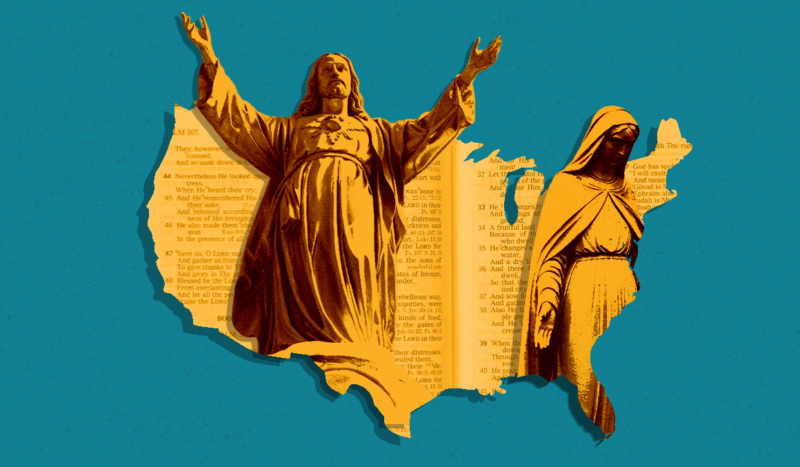
CV NEWS FEED // While the cultural climate may feel post-Christian, the numbers reflect otherwise, according to a recent study.
“Can we pump the brakes on the post-Christian America talk, please?” wrote Ryan Burge, research director at Faith Counts. Burge develops graphs to make statistics about religion more accessible.
Though the number of Christians in the U.S. is declining, more than half of Americans still identify as Christians, while less than 10% identify as atheists or atheists, Burge reported.
“The United States is still a majority Christian country. It has been (as best we can tell) majority Christian since the Colonial Period and will likely continue to be that way for at least the next several decades,” Ryan Burge wrote. “In politics, there is no more consequential vote than the Christian vote. Nothing else even comes close.”
According to 2019–2021 data from Nationscape, about 40% of Americans are Protestant, and almost a quarter are Catholic. In total, about 66% are some form of Christian, including Latter-day Saints. More than 70% are religious, while only about 4% identify as atheists and 5% as agnostics.
The biggest chunk after Christians are those who don’t subscribe to any category, also known as “nones.” The Nationscape data found that 20% of Americans identify as “nothing in particular.”
In total, less than 30% are non-religious.
“If 3% of Catholics switched from one party to the other at the ballot, that would very likely impact who will be sitting in the Oval Office in January of 2025,” Burge added.
According to a General Social Survey shared by Burge, the percentage of Christians in the U.S. has decreased from 90% in 1978 to 62% in 2021. The decrease has largely been among white Christians, who have decreased by almost 30%, while the percentage of non-white Christians has been steady at an average of 16% since the 1970’s.
